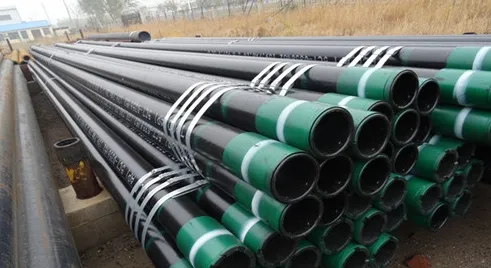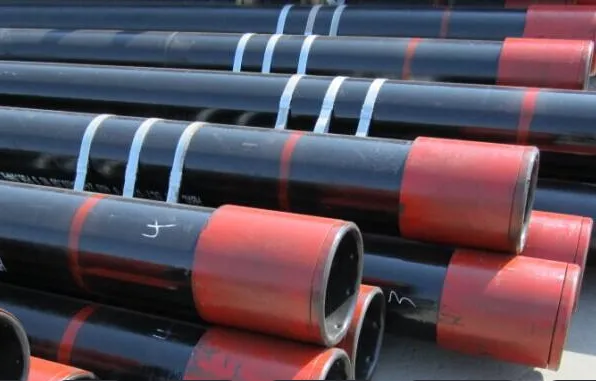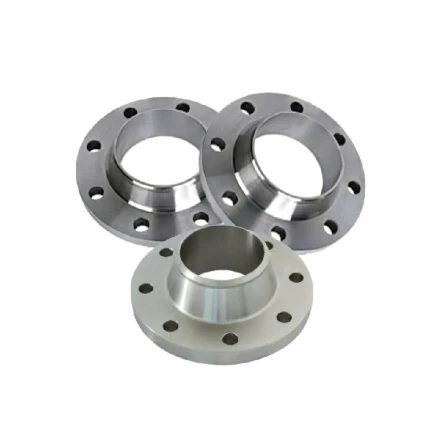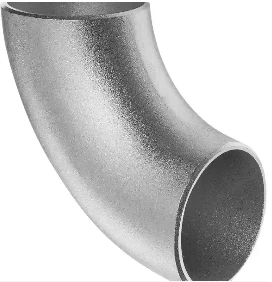Key Characteristics:
- 1.Material Composition:
- - API 5CT L80 pipes are made from carbon steel and typically have the following chemical composition:
- - Carbon (C): ≤ 0.24%
- - Manganese (Mn): 0.40% - 1.20%
- - Phosphorus (P): ≤ 0.020%
- - Sulfur (S): ≤ 0.010%
- - Other alloying elements such as Chromium (Cr) and Molybdenum (Mo) may be present to enhance corrosion resistance and strength, particularly in sour service applications.
- 2. Mechanical Properties:
- - Yield Strength: Minimum yield strength of 80,000 psi (552 MPa).
- - Tensile Strength: Typically ranges from 90,000 psi to 110,000 psi (620 MPa to 760 MPa).
- - Elongation: Generally around 16% to 20%, which can vary based on the pipe's wall thickness and diameter.
- 3. Dimensions and Specifications:
- - API 5CT L80 pipes are available in a range of sizes and wall thicknesses to fit various well requirements.
- - Common nominal pipe sizes (NPS) range from 4.5 inches to 20 inches or more, with different wall thickness classifications available based on API standards.
- - The pipes can come in various lengths, usually ranging from 20 to 40 feet.
- 4. Manufacturing Process:
- - API 5CT L80 pipes can be produced through two primary methods:
- - Seamless: These pipes are manufactured without welds, providing greater strength and reliability.
- - Welded: Produced using steel plates or coils, welded longitudinally, suitable for specific applications without the stringent demands of seamless pipes.
- - Each manufacturing process adheres to strict quality control standards, including non-destructive testing (NDT).
- 5. Coatings and Finishes:
- - To enhance resistance to corrosion, API 5CT L80 pipes may be coated with various protective materials:
- - Bare steel (uncoated)
- - Internal and external coatings like epoxy or polyurethane.
- - Other corrosion-resistant coatings as required based on the environment they are intended for.
- 6. Applications:
- - API 5CT L80 pipes are commonly used as casing in oil and gas wells, particularly for:
- - High-pressure applications
- - Sour service environments (where H2S is present)
- - As well as in environments where corrosion resistance is critical.
- - They are also utilized in the construction of gas wells, service wells, and water wells.
- 7. Standards and Compliance:
- - API 5CT L80 pipes are manufactured in compliance with API standards, ensuring high quality and reliability.
- - The pipes must also meet additional requirements and specifications, which may include international standards such as ISO or ASTM based on specific project demands.
- 8. Testing and Quality Control:
- - Extensive testing is conducted to ensure the quality of API 5CT L80 pipes:
- - Hydrostatic testing to determine leak tightness and strength.
- - Non-destructive testing (e.g., ultrasonic testing) to check for any internal or surface discontinuities.
- - Mechanical testing to confirm yield strength, tensile strength, and impact properties.
- Summary:
- API 5CT L80 pipes are designed for high strength and corrosion resistance, making them suitable for demanding applications in the oil and gas industry, particularly in environments with sour conditions. Their minimum yield strength of 80,000 psi ensures reliability in high-pressure situations. When selecting API 5CT L80 pipes, it is essential to consider factors such as size, wall thickness, coating options, and compliance with relevant standards. Consistent testing and quality control measures are vital for maintaining the integrity and performance of these pipes in critical applications.
Schreift Äre Message hei a schéckt en un eis















